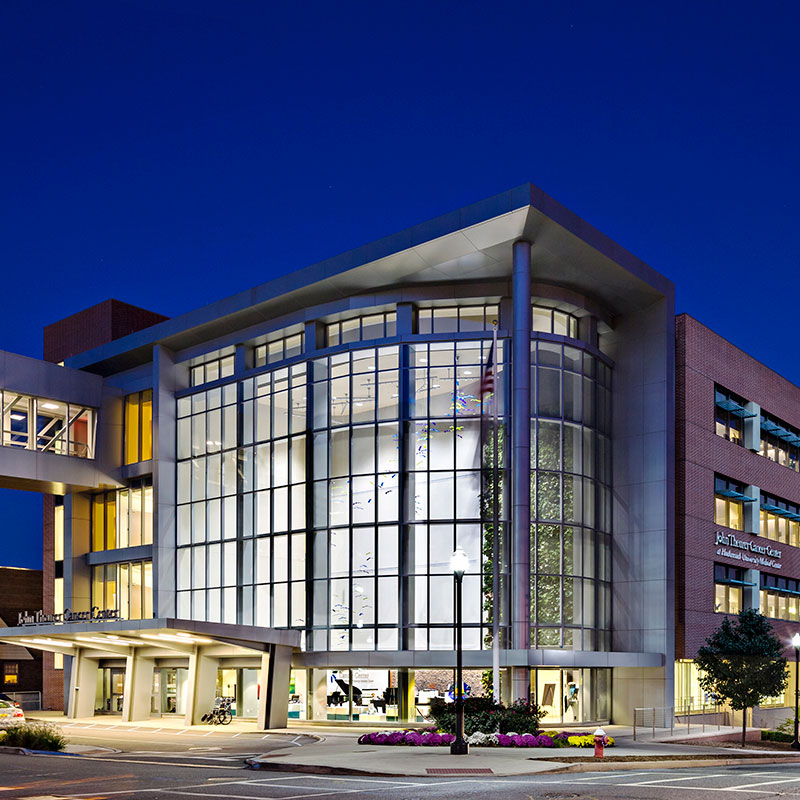Lung Cancer During COVID-19
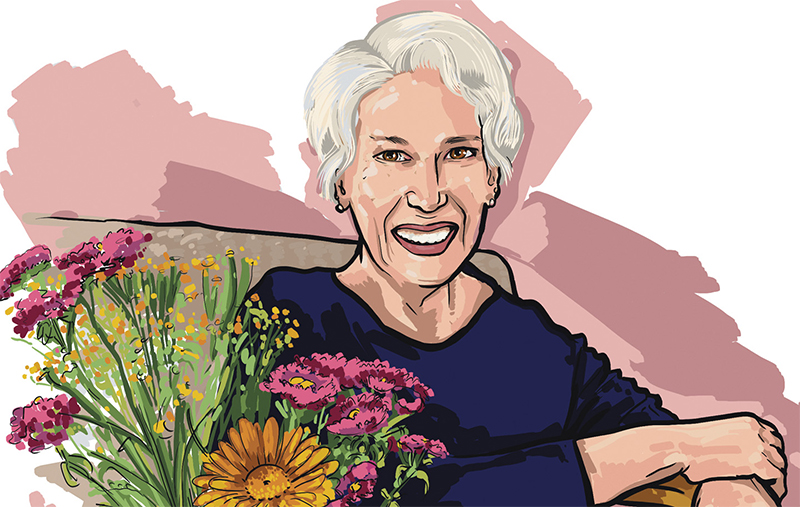
August 14, 2020
Typically, we photograph every patient appearing in HealthU. Because this story was planned during the surge of COVID-19, that contact would have been too risky. Instead, our team took a creative approach and replaced photo shoots with illustrated portraits of patients.
Barbara Provost isn’t a stranger to surgery. She’s had both hip and knee replacement surgery, and in October 2018, she had successful breast cancer surgery. On March 12, 2020, when she was diagnosed with stage 1 lung cancer, Barbara thought, “Oh no, here we go again.”
This time, however, the circumstances were different. COVID-19 was beginning to rear its ugly head and social-distancing measures were starting to ramp up across the country. “I was very afraid to go to the hospital with all of this going on,” Barbara recalls. “I was worried for myself, but also for my husband, who has emphysema.”
But time was of the essence—both because of the quick-spreading nature of lung cancer and because of the uncertainties surrounding the pandemic. “We did not want to wait for the COVID-19 crisis to end to schedule Barbara’s surgery,” says Nabil Rizk, M.D., chief of thoracic surgery at Hackensack University Medical Center. “We wanted to get her in and out of the hospital as quickly as safely possible before the inevitable wave arrived.”
A New Protocol
Barbara’s lung cancer diagnosis came as a surprise. She has advanced rheumatoid arthritis and had torn some tendons in her hand. “I needed clearance to get surgery on my hand,” she says. “Needless to say, I did not pass after my chest X-ray showed a mass in my lung.”
Both her cardiologist, Ruchi Sethi, M.D., and her oncologist, Donna McNamara, M.D., recommended Dr. Rizk. “I have never met a more caring doctor than Dr. Rizk,” Barbara says. “I felt such a strong sense of trust in him from the first meeting.”
Barbara needed a lobectomy, the surgical removal of a section of the lung, to remove the tumor.
While New Jersey wasn’t yet in the surge of the pandemic, Dr. Rizk needed to be as cautious as possible to ensure that Barbara was COVID-19-negative prior to surgery and that she didn’t acquire it while in the hospital. “At that time, data was coming out of Italy about lung cancer patients being more impacted by COVID-19,” he says. “We knew we needed extra safety precautions given what was obviously coming our way.”
Dr. Rizk created a new three-step protocol to prove that Barbara was COVID-19-negative leading up to surgery:
- First, Barbara was tested for COVID-19. Several days later, the test came back negative.
- Immediately after her test, she isolated at home for nearly two weeks, in case her test result was a false negative.
- Lastly, Barbara was given a CAT scan to reveal any abnormalities due to COVID-19.
“These measures meant we were very confident that Barbara didn’t have COVID-19 going into surgery,” Dr. Rizk says.
Barbara was confident, as well, but some of her family members felt differently. “My brother and my daughter were concerned and wanted me to delay my surgery [until COVID-19 subsided],” she says. Dr. Rizk suggested getting on a conference call with all of Barbara’s family to address their concerns. “He took so much time to answer every question that they had,” Barbara says. “When we hung up, my daughter said, ‘I trust him.’”
In and Out
Barbara’s surgery was scheduled for April 1. But on March 27, she got a call from one of Dr. Rizk’s nurses. “She told me that Dr. Rizk wanted to push up the surgery to the following day,” Barbara says. Dr. Rizk was confident that he had a safe way to perform surgery and wanted to do so before the number of COVID-19 patients further ramped up.
So on March 28, Barbara’s son drove her to Hackensack and dropped her off at the entrance. “The difficult part was walking in alone,” she says. “My son couldn’t come in with me because of the pandemic. I understood that safety was the highest precaution, but not having my loved ones with me was difficult.”
Dr. Rizk successfully performed a robotic right upper lobectomy. “The vast majority of our lobectomies are now robotic,” he says. “Relative to an open operation, the length of hospital stay for a robotic procedure can be shorter.”
At Hackensack, the typical recovery time for a robotic lobectomy includes one to two days in the hospital. “In the era of COVID-19, we want to minimize the interaction with patients in the hospital,” Dr. Rizk says. “For Barbara, we operated on a Friday afternoon and discharged her on Saturday. We knew that home was the safest place for her to recover. The other advantage of going home quickly is she didn’t have to stay away from her family for long.”
Immediately after surgery, Barbara was taken to an isolated room to recover safely. Her nurse asked if she would like to speak with her family. “That confused me at first because they weren’t allowed to be there,” Barbara says. “Instead, she offered me a phone and dialed my family. It was a great kindness, and I was so grateful and relieved to hear my family’s voices. All the nurses and staff were wonderful.”
Shortly after, Dr. Rizk came to check on her. “He told me, ‘Even though I will not be standing beside you because of the pandemic, I will be watching over you. I want you to know that.’ This statement was such a comfort to me,” she says.
A New Normal
Barbara is now a few months into recovery and doing well. All of her lymph nodes are benign, and she’ll need no future therapies except for ongoing imaging.
She is sheltering in place with her husband and looks forward to the day when she can reunite with her extended family—her son, daughter, step-son, step-daughter, six grandchildren, two great-grandchildren and one more great-grandchild on the way. She also looks forward to celebrating her niece’s high school graduation, even virtually.
“I remain positive that I’ll continue to recover. I’ve already recommended Dr. Rizk to a friend recently diagnosed with lung cancer,” she says. “I am eternally grateful for the kindness and care I received from Dr. Rizk and his team.”
Barbara’s legacy is living on at Hackensack, too. “The methods we used to minimize the risk of infection for Barbara—and the lengths we went to prove that she was COVID-19-negative—are now being adopted across the hospital,” Dr. Rizk says. “That gives our patients confidence that we have a process to protect them during this uncertain time.”
Next Steps & Resources
- Meet your sources: Nabil Rizk, M.D., Ruchi Sethi, M.D., and Donna McNamara, M.D.
- To make an appointment with Nabil Rizk, M.D., Ruchi Sethi, M.D., Donna McNamara, M.D. or another provider, call 800-822-8905 or visit our website
The material provided through HealthU is intended to be used as general information only and should not replace the advice of your physician. Always consult your physician for individual care.
When to Get a Lung Cancer Screening
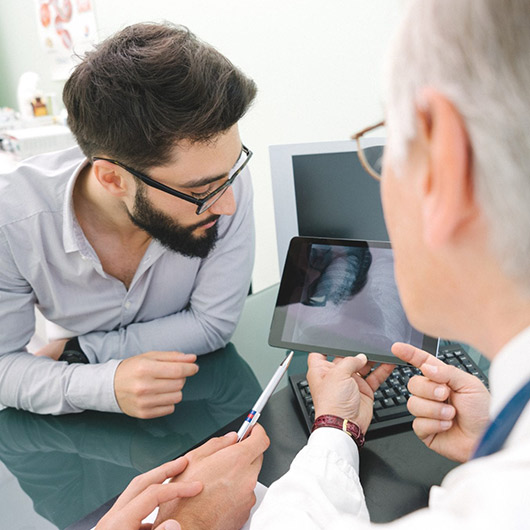
People rarely know they have lung cancer when it is at most curable. In fact, only 15 percent of lung cancers are diagnosed early.
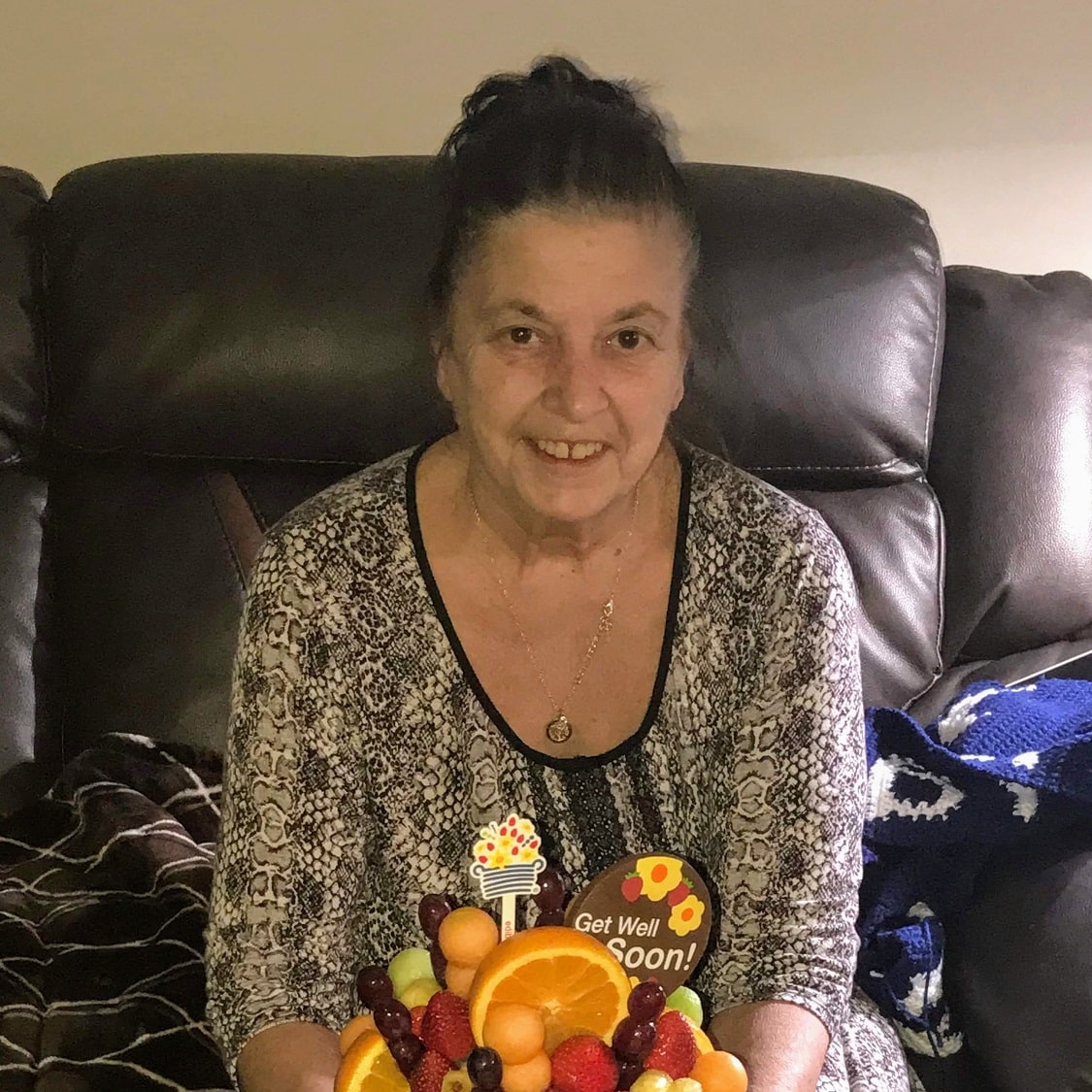
Fighting Bladder Cancer
The fears of Rose Ann Rangel, whose mother and brother died of cancer, seemed to be coming true.
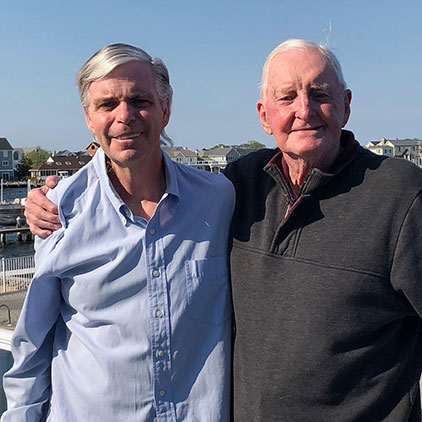
Father and Son Overcome Colorectal Cancer Thanks to Timely Screenings
When Don Heddy turned 50 in December 2019, he knew there was one thing he needed to do: schedule a colonoscopy. Like anyone trying to stay on top of their health, he was faithful to that. But he didn’t expect the outcome.
